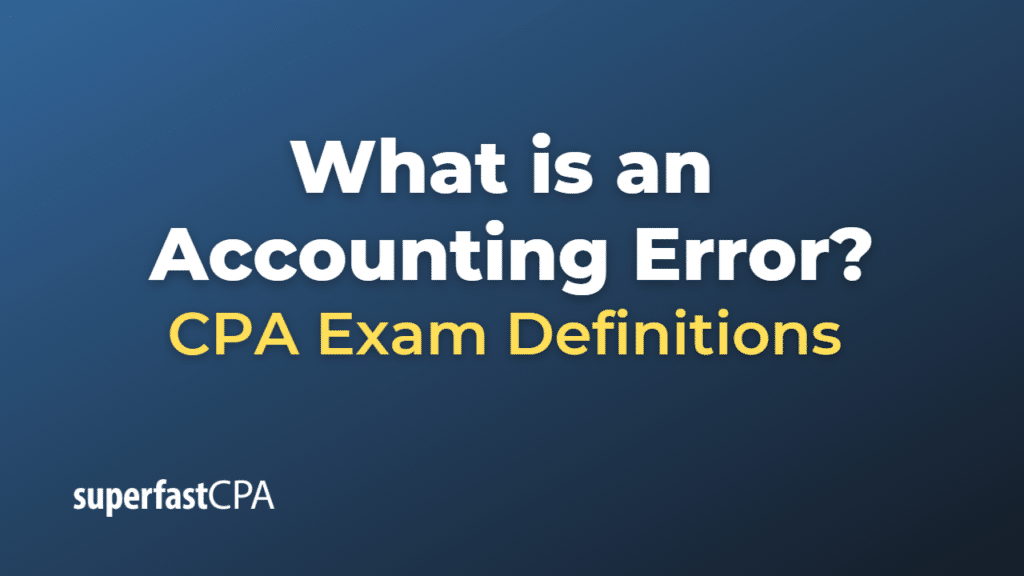Accounting Error
An accounting error is a mistake or inaccuracy that occurs in the process of recording, classifying, summarizing, or interpreting financial transactions and information in an organization’s accounting system. Accounting errors can result from human error, system glitches, misinterpretation of accounting principles, or even fraud. If left undetected and uncorrected, accounting errors can lead to inaccurate financial statements, misleading information, and potentially poor decision-making by management, investors, and other stakeholders.
There are various types of accounting errors, including:
- Errors of omission: These occur when a financial transaction is completely left out of the accounting records, resulting in an incomplete representation of the organization’s financial activities.
- Errors of commission: These errors occur when a financial transaction is recorded but with incorrect details, such as the wrong amount, wrong account, or wrong date.
- Errors of principle: These errors occur when a financial transaction is recorded in violation of fundamental accounting principles, such as recording revenue when it has not yet been earned or not adhering to the matching principle for expenses.
- Compensating errors: These occur when two or more separate errors offset each other, resulting in financial statements that appear to be accurate but are not. For example, if one expense is mistakenly overstated by $1,000, and another expense is understated by $1,000, the net effect on the financial statements would be zero, but the underlying errors still exist.
- Transposition errors: These errors occur when two digits within a number are reversed, such as recording $540 as $450.
- Error of duplication: This type of error occurs when a financial transaction is recorded more than once, leading to an overstatement of assets, liabilities, revenue, or expenses.
Detecting and correcting accounting errors is essential for maintaining the accuracy and reliability of an organization’s financial records. Regular reconciliation of accounts, internal control procedures, and periodic review of financial statements can help identify and rectify accounting errors. In some cases, restating financial statements might be necessary if errors have a material impact on the organization’s reported financial position or performance.
Example of an Accounting Error
Let’s consider a fictional example of a small business called “GreenLeaf Landscaping” to illustrate an accounting error.
GreenLeaf Landscaping is a company that provides lawn care and landscaping services. In May, GreenLeaf received $5,000 from a client for a landscaping project. However, instead of recording the payment in the “Service Revenue” account, the bookkeeper mistakenly recorded it in the “Rent Revenue” account.
This is an example of an error of commission, as the transaction has been recorded with incorrect details (wrong account).
To correct the error, GreenLeaf Landscaping’s bookkeeper should make the following adjusting journal entry:
| Date | Account | Debit | Credit |
|---|---|---|---|
| 05-31-2023 | Rent Revenue | $5,000 | |
| Service Revenue | $5,000 |
By making this adjusting entry, the bookkeeper removes the revenue from the incorrect “Rent Revenue” account and records it in the correct “Service Revenue” account. This correction ensures that GreenLeaf Landscaping’s financial records accurately reflect its business activities and provides a reliable basis for financial reporting and decision-making.
It is essential for businesses to have internal control procedures and regular account reconciliations in place to identify and correct accounting errors. By doing so, they can maintain the accuracy and integrity of their financial records, ensuring that financial statements provide a true and fair view of their financial position and performance.













